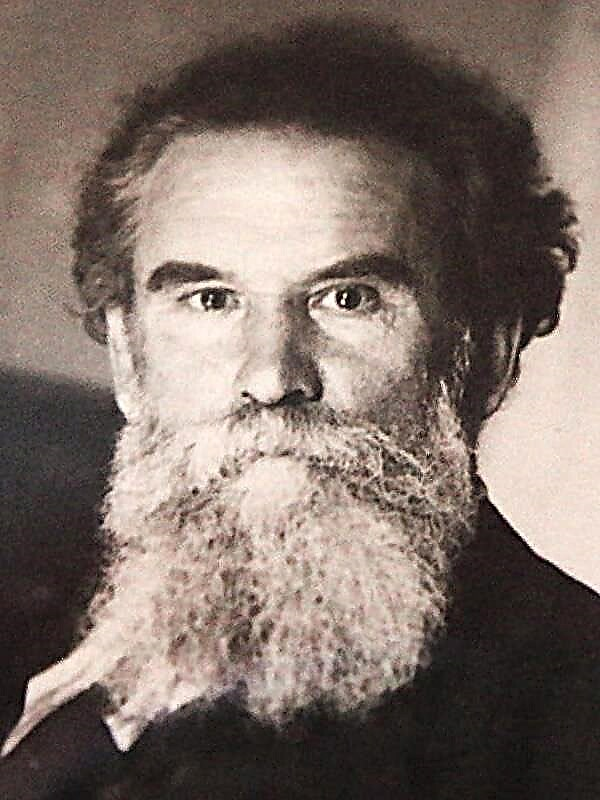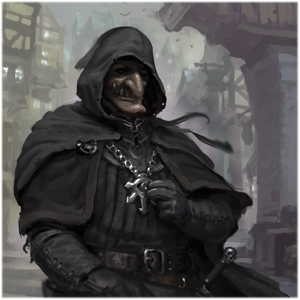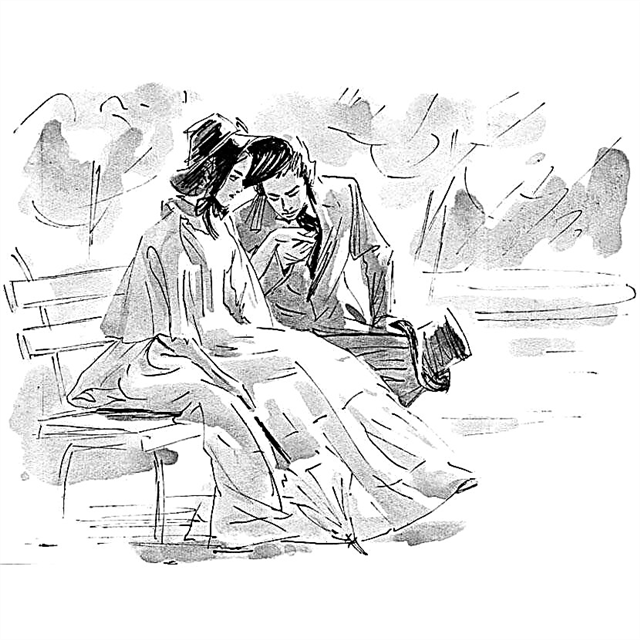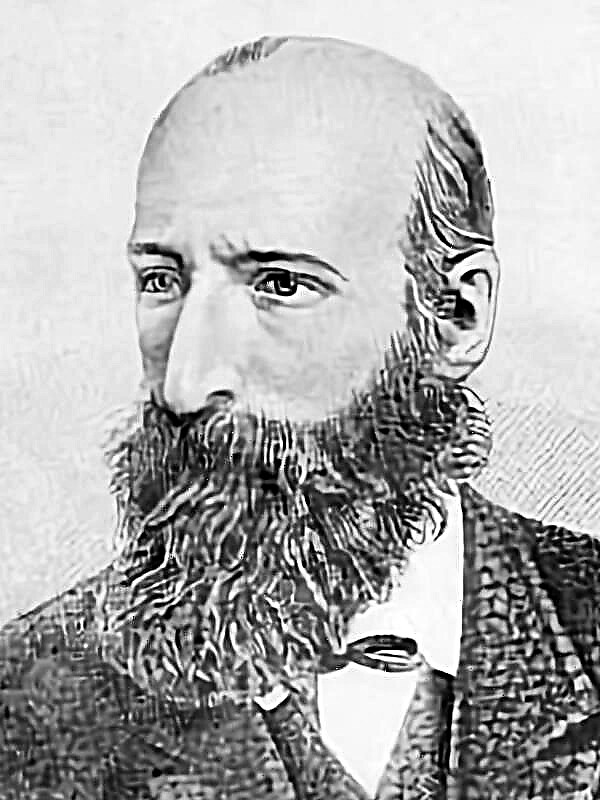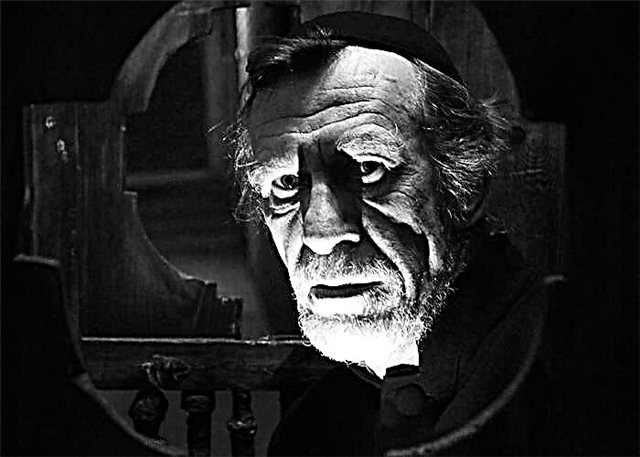Anton Pavlovich Chekhov is considered a master of small literary forms. Not just like that, his phrase became: “Brevity is the sister of talent”. His story “Chamber No. 6” was repeatedly recognized (including by the contemporaries of the writer) as his best work, because in it he managed to show the vulgarity of the musty provincial life in the Russian outback, where the human person will inevitably degrade.
History of creation
In 1890, Anton Pavlovich Chekhov traveled to Sakhalin Island, where he studied the life of convicts and exiles. After the trip, he wrote the book “Sakhalin Island”, and after that a series of stories, among which “Chamber No. 6”, published in 1892. This feat of the doctor and the artist of the word cost the writer a life, because as a result of a dangerous and cold journey without the necessary amenities, consumption became aggravated. From her, the author dies.
In the story, echoes of that journey are noticeable. This is Nikita, clearly reminiscent of the cruel Sakhalin overseers, and residents of House No. 6, reminiscent of prisoners, and the general oppressive atmosphere of doom reigning in the city. Cruel mores and unfair treatment of patients have something in common with those terrible details of the prison life that the author faced.
Genre, direction
"Ward number 6" is written in the genre of the story. However, in Russia in the 19th century, the story was also called what corresponds to the term “story” today. Such concepts as “story” and “short story” were not yet known, so the term “story” meant everything, the volume of which was less than the novel.
"Ward No. 6" is entirely consistent with the genre of the story. The volume of the work is slightly larger than the average story, but clearly less than the novel, in addition, the plot is chronicled and reproduces the natural course of life, all this clearly indicates a story.
A story is written in the direction of realism, which is so characteristic of Chekhov's work. The author reproduces events from real life, everything is extremely authentic.
Essence
The story tells about a small hospital wing, in which there is a ward number 6, designed for the mentally ill. The protagonist is Andrei Efimich Ragin, the doctor of this hospital. He is by nature a kind, well-mannered and intelligent man, but deprived of “character and faith in his own right”. And therefore, despite the fact that he is clearly dissatisfied with the unsanitary conditions prevailing in the hospital, the poor attitude towards patients and the way employees steal budget money and medicines, he does nothing, resigned to what is happening.
One day he visits ward number 6, where Gromov, one of the patients, accuses him of theft and dishonesty, as a result of which a dispute arises between them. The conversation with Gromov so interested Andrei Yefimich that he came to the ward again and again. Soon, a rumor spreads around the hospital that the doctor visits the insane all the time, and this is also known to Dr. Khobotov, who clearly claims to be Ragin and envies him, imagining that Andrei Yefimych hides a whole accumulated state. After some time, Ragin was dismissed, and a little later recognized as insane and taken to ward No. 6, where he soon dies. His staff brings the unfortunate to a heart attack.
The main characters and their characteristics
The main characters are few, but each of the characters is a solid, complete and interesting image.
- Andrey Efimich RaginAs mentioned earlier, a kind, but weak-willed person who does not know how to give orders and at least somehow dispose of. He is smart, reads a lot and spends half his salary on buying books. The life of a small town seems boring to him, as well as work that he did not choose, therefore, he does not treat patients properly, justifying this with “philosophical reflections”, according to which we are all mortal anyway, and it does not make any difference how and when to die . In disputes with Gromov, he takes the position of the Stoics, arguing that suffering is good, and a person can be equally happy both in the cell and in the warm office.
- Ivan Dmitrievich Gromov with the position of Ragin strongly disagree. He considers the doctor’s reasoning not philosophy, but laziness and a "sleepy idiot." Gromov also considers Ragin incompetent in this matter, because he has not known suffering in his entire life. Ivan Dmitrievich himself was unlucky in life. The author tells us his biography in sufficient detail. Gromov is an impoverished nobleman, in whose life 12-15 years ago the “black streak” began. First, Ivan's brother died, then the family father was arrested and deprived of property, then Gromov and his mother remained in poverty, and he had to leave the university and return home. In the city, he worked as a teacher and bailiff, but was soon fired due to illness. In the same period, Ivan's mother died. After the death of his mother, Gromov developed a persecution mania. He was first admitted to the hospital in an ordinary ward, and then to ward No. 6. Ivan Dmitrievich is a very smart and well-read person. When he was still healthy, the residents of the city mistook him for a "walking reference dictionary." He despises the townspeople with their lazy and "sleepy animal life." Ragin’s reasoning seems nonsense to him because he doesn’t want to suffer anymore, he wants to be free, and he would gladly exchange a terrible ward for a warm office.
Two more very important for the story and very interesting images are the images of Mikhail Averyanych and Evgeny Fedorovich Khobotov.
- Mikhail Averyanovich - Ragin's best friend. The ruined once rich landowner, now working as a postmaster. Unlike Andrei Yefimich, he loves to command, and gives orders even when this is not required. Because of this habit, the townspeople are even afraid to come to the post office. It is very noisy, and often it quickly bothers others. He likes to loudly tell stories, many of which are doubtful and hardly true. His attempts to “cure” Ragin, only annoy Andrei Yefimich, as does the noisy behavior of Mikhail Averyanych and his perseverance. Once they went on a trip, and the postmaster lost a lot of cards. He borrowed a large amount of money from a friend, stubbornly did not want to give it back, and as a result, after the dismissal, the doctor barely made ends meet, to which his friend answered only with excuses. This is a wasteful and selfish man.
- Evgeny Fedorovich Khobotov - a new young doctor sent by the zemstvo to work in the hospital. He is envious and greedy. Envious of Ragin’s position and the money that he allegedly has. He also puts Ragin in ward No. 6, and by deception, luring him to the council and forcibly holding him in the ward. The fact that in order to achieve his goal he is ready for this, says a lot.
Topics
The life of a small hospital wing prompts the author to unusual thoughts.
- The subject of vulgarity. The whole city lives on consumer goals and philistine conversation topics. There is nothing to do, nowhere to go, nothing to do. People lock themselves tight in their cases, ignoring the world around them. If Mikhail Averyanovich appears to be the only possible interlocutor, one can imagine how much worse and dumber the rest of the inhabitants of this corner. And the local "elite" lives only gossip and gossip, they have no spiritual need for education, so all life is built on primitive values and old dogmas.
- Theme of loneliness. The doctor was truly alone, he had no one to talk to, and, escaping from this, he ruined his career. No one could share scientific debates and conversations with him, and nobody cared about him, because the hero was not a rich man. And if he has no money, what to take from him? So almost all the townspeople and employees thought. Even being in society, you can be alone if there is no mutual understanding with the environment. The consequences of such a closed lifestyle are also visible: a person does not see life, leaves in illusion, being an unsuitable employee, anywhere.
- Theme of Vocation. If the hero himself chose his path, then his activity would be more useful. Obeying his father, he made the wrong choice. As a result, he brought no benefit to anyone: neither society, nor family, nor himself. This example suggests that a person himself must determine his occupation, otherwise there will be no sense from his actions at all.
- Theme of responsibility. Alas, all the heroes demonstrate complete irresponsibility towards each other. The doctor justifies his inactivity, gives whole philosophical theories, just to do nothing. He sincerely sympathizes with the patients, but finger does not hit the finger to cure at least someone. His friend loses a fortune altogether, bringing his comrades to poverty, asking for money and not giving it back.
Chekhov did not just choose the hospital wing of a small town as the object of the story. This allows you to raise a large number of complex problems and more clearly express the main idea of the work.
Problems
In the story, Chekhov raises many different problems. He writes about human ignorance, cruelty, about the all-consuming indifference of people to each other. In Ward No. 6, doctors are indifferent to patients, judges to the defendants, even Ragin's friend Mikhail Averyanych is indifferent to him. Chekhov reveals all the evil of human indifference, this is the main problem in the book. It rules the ball in all such places, it, in the end, kills the main character. No one came to his rescue, because in his entire life he had never helped anyone, building a system of excuses.
Social issues are also presented. We see a hospital outbuilding that needs repair, in which there are not enough drugs. This is a problem of negligence and theft of officials. We see poor people who have no choice and who have to turn to indifferent doctors to this very outbuilding. This is a problem of social inequality: nobody will do anything for the poor.
The author raises the philosophical problems of self-determination and the essence of being: what is life? What does a person need to be happy? These issues often affect Ragin and Gromov in their disputes. One says that people should be indifferent to everything that surrounds them, and genuine harmony is hidden in this indifference. Another argues that man was created for joy, freedom and love, and his point is to grow yourself and develop this world. Who is right, the reader decides, the author only dryly tells the main events.
Meaning
Chekhov condemns people who are indifferent to others. He shows how many problems in human life arise from indifference. It shows the sad realities of the county of Russia, where people are poor because of the indifference of the state, where they die from the indifference of doctors, are convicted because of the indifference of the judges, they cannot even send a letter in time because of the disregard of the post office workers. The main idea of the writer is to show the fatal consequences of indifference, to open people's eyes to the need for change.
The story should be a warning and a lesson to all of us. She teaches us to be more attentive to other people's problems, to empathize with others, to forget about egoism, because with a little egoism the problems of a big country begin. The main idea of Chekhov is an ardent appeal to people who can only jointly solve problematic issues. No one should be aloof, everyone should contribute to making life better.
Criticism
To the contemporaries, the story seemed entirely devoted to criticism of “Tolstoyism” and “non-resistance,” the philosophy of indifference that society suffered. However, the work was much deeper, which came as a surprise to the writer himself. The ideological and artistic originality of the book shocked contemporaries.
Nikolai Semenovich Leskov wrote:
In Chamber No. 6, our general orders and characters are shown in miniature. Everywhere - ward number 6. This is Russia. Chekhov himself did not think what he wrote (he told me this), but meanwhile it is. His chamber is Russia!

